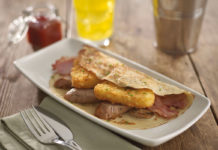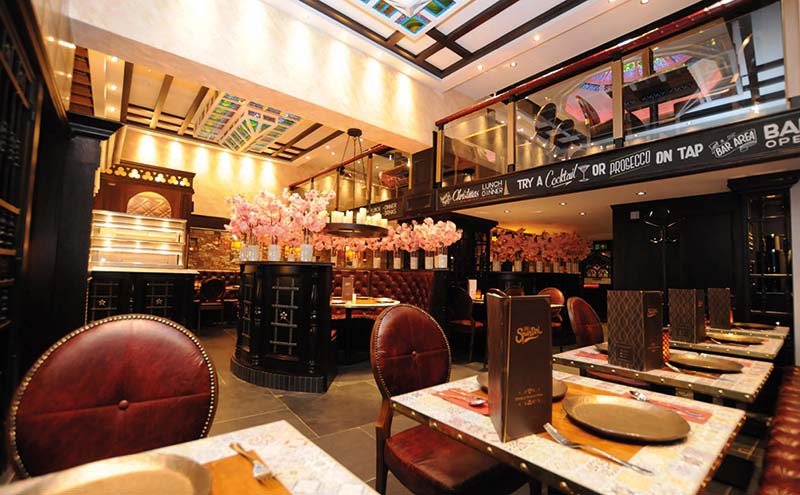Fried food remains popular in venues, but the right oil and equipment is essential

WHILE there is a general trend towards eating healthier, the reality is that a large number of people still look to treat themselves with traditional, hearty pub classics.
And to execute many of the signature dishes of the on-trade to a high standard, it’s necessary to have a good, well-maintained commercial fryer and to cook with the right oil.
To get the most out of a fryer, in terms of both cooking and lifetime, it’s essential to make sure it is well looked after, said David Barton, sales director of Pantheon Catering Equipment.
“The fryer should be drained and cleaned at the end of every service,” said Barton.
“Accumulated debris can cause the element to take longer to heat and reduce efficiency.
“Flavour contamination won’t be an issue if this routine is always adhered to.”
Though a fryer can last for many years, if properly maintained, when the time comes to replace the item operators have a wide range of units to choose from.
Paul Siouville, brand manager of Buffalo Appliances for Nisbets, said the latest fryer equipment, featuring induction technology, can provide a range of advantages to licensed venues.
“It provides faster heating, improved efficiency and a more consistent heat than cooking by thermal conduction as it doesn’t heat the air around the fryer, allowing for precise heat control,” said Siouville.
And the trend towards healthier eating is not incompatible with frying, according to Jestic Foodservice Equipment’s sales director, Steve Morris.
He said: “With healthier oils now commonly available to licensees and chefs able to take advantage of preparation methods that reduce the amount of oil absorption from foods, fried foods can still be enjoyed as part of a balanced diet.
“Chips can be steamed beforehand to reduce the necessary frying time and allow pubs to serve a healthier chip that is still flavourful.
“Creative methods like this ensure that outlets can still deliver customer favourites, whilst also ensuring the products are healthier.”
Sandro Bevilacqua, vice-chairman of specialist importer and distributor Continental Quattro Stagioni, agreed, saying a change in oil can help make fried fare better-suited to the health conscious consumer.
He said: “If operators are looking for lighter alternatives to other cooking oils, rapeseed is a great choice.
“It’s low in saturated fat, contains omegas 3, 6 and 9, which help to reduce cholesterol and help to maintain healthy joint, brain and heart functions. As it’s high in mono-saturated fats, rapeseed oil is one of the only unblended oils that can be heated to a high frying temperature and not spoil its antioxidants, character, colour or flavour.”
For the majority of outlets, the decision of what oil to cook with will depend primarily on what suits the food on their menu and, of course, their budget.
Steve Elliot, sales director for Valentine Equipment and Cuisinequip, said: “Chefs will have to work out what oil is the most suitable, based on experience and analysing the costs per kilogram of food cooked. A good analogy is that if you do high mileage in your car, budget tyres can be false economy in the long term.”
And just as it’s important to maintain the fryer; it’s crucial from a delivery perspective to make sure the cooking oil’s quality is preserved too or operators run the risk of serving second-rate food, explained Shaune Hall, development chef for Falcon Foodservice Equipment.
“I would suggest changing the oil every four or five days,” he said.
“If you think the oil quality is poor, change it.
“Putting out poor quality food due to old oil is not worth the risk.”
























